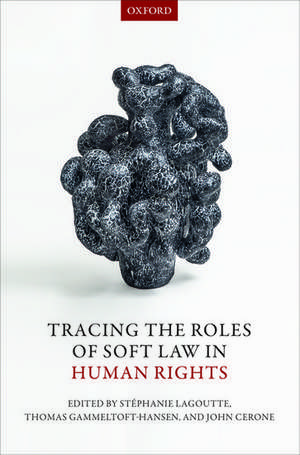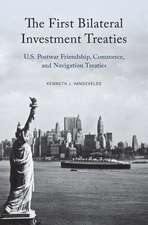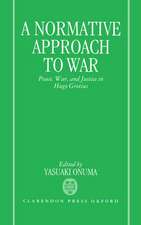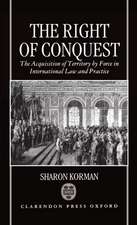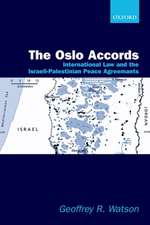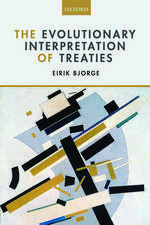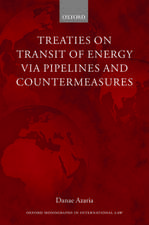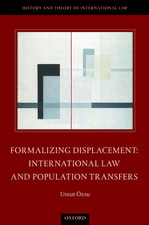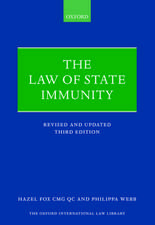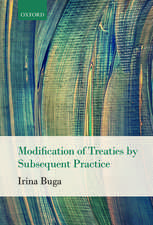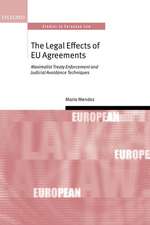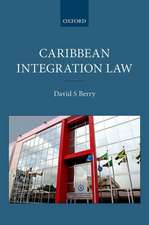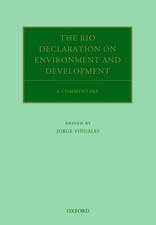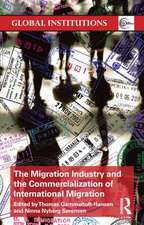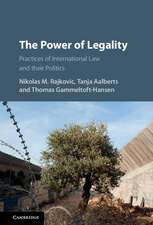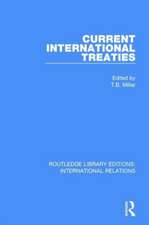Tracing the Roles of Soft Law in Human Rights
Editat de Stéphanie Lagoutte, Thomas Gammeltoft-Hansen, John Ceroneen Limba Engleză Hardback – 17 noi 2016
Preț: 718.29 lei
Preț vechi: 987.46 lei
-27% Nou
Puncte Express: 1077
Preț estimativ în valută:
137.45€ • 143.80$ • 114.18£
137.45€ • 143.80$ • 114.18£
Carte tipărită la comandă
Livrare economică 24-29 martie
Preluare comenzi: 021 569.72.76
Specificații
ISBN-13: 9780198791409
ISBN-10: 0198791402
Pagini: 352
Dimensiuni: 164 x 240 x 27 mm
Greutate: 0.69 kg
Editura: OUP OXFORD
Colecția OUP Oxford
Locul publicării:Oxford, United Kingdom
ISBN-10: 0198791402
Pagini: 352
Dimensiuni: 164 x 240 x 27 mm
Greutate: 0.69 kg
Editura: OUP OXFORD
Colecția OUP Oxford
Locul publicării:Oxford, United Kingdom
Notă biografică
Stephanie Lagoutte is Senior Researcher at the Danish Institute for Human Rights. She holds a Doctoral degree in law from the University of Paris 1, Pantheon-Sorbonne and a Ph.D. in Law from the University of Aarhus. She has taught and published within the field of European Human Rights Law, including on the reform of the European Court of Human Rights, human rights, and family law as well as religious freedom. Most of her recent work focuses on the duties and role of the state in human rights protection. She has coordinated research projects with partners from developing countries, especially in West Africa. In 2012-2014 she has been working in close cooperation with the UN Working Group on Human Rights and Business focusing on state duties under the UN Guiding Principles on Human Rights and Business.Thomas Gammeltoft-Hansen is Research Director at the Raoul Wallenberg Institute for Human Rights and Humanitarian Law. He holds a doctoral degree in law from Aarhus University, an MSc in forced migration from the University of Oxford, and an MPhil in political science from the University of Copenhagen. In addition to his academic work, Thomas Gammeltoft-Hansen serves as member of the Danish Refugee Appeals Board and has served as adviser and consultant to a number of international organisations, governmental institutions, and European NGOs. John Cerone is Paul Martin Senior Professor in International Affairs & Law at the University of Windsor Faculty of Law, and Visiting Professor of International Law at The Fletcher School of Law & Diplomacy, Tufts University. In 2014-15, he was Distinguished Chair in Human Rights & Humanitarian Law at the Raoul Wallenberg Institute, Lund University Faculty of Law. Professor Cerone has worked for UN agencies, the OSCE, and several international human rights NGOs, and has served as a legal adviser to international criminal courts. He has extensive field experience in conflict and post-conflict environments, including Afghanistan, Kosovo, Sierra Leone, and East Timor. He is an elected member of the International Institute of Humanitarian Law and has been a member of the International Committee of the Red Cross (ICRC) Expert Group on the Law of Occupation. He also served as Special Adviser to the first U.S. delegation to the UN Human Rights Council.
